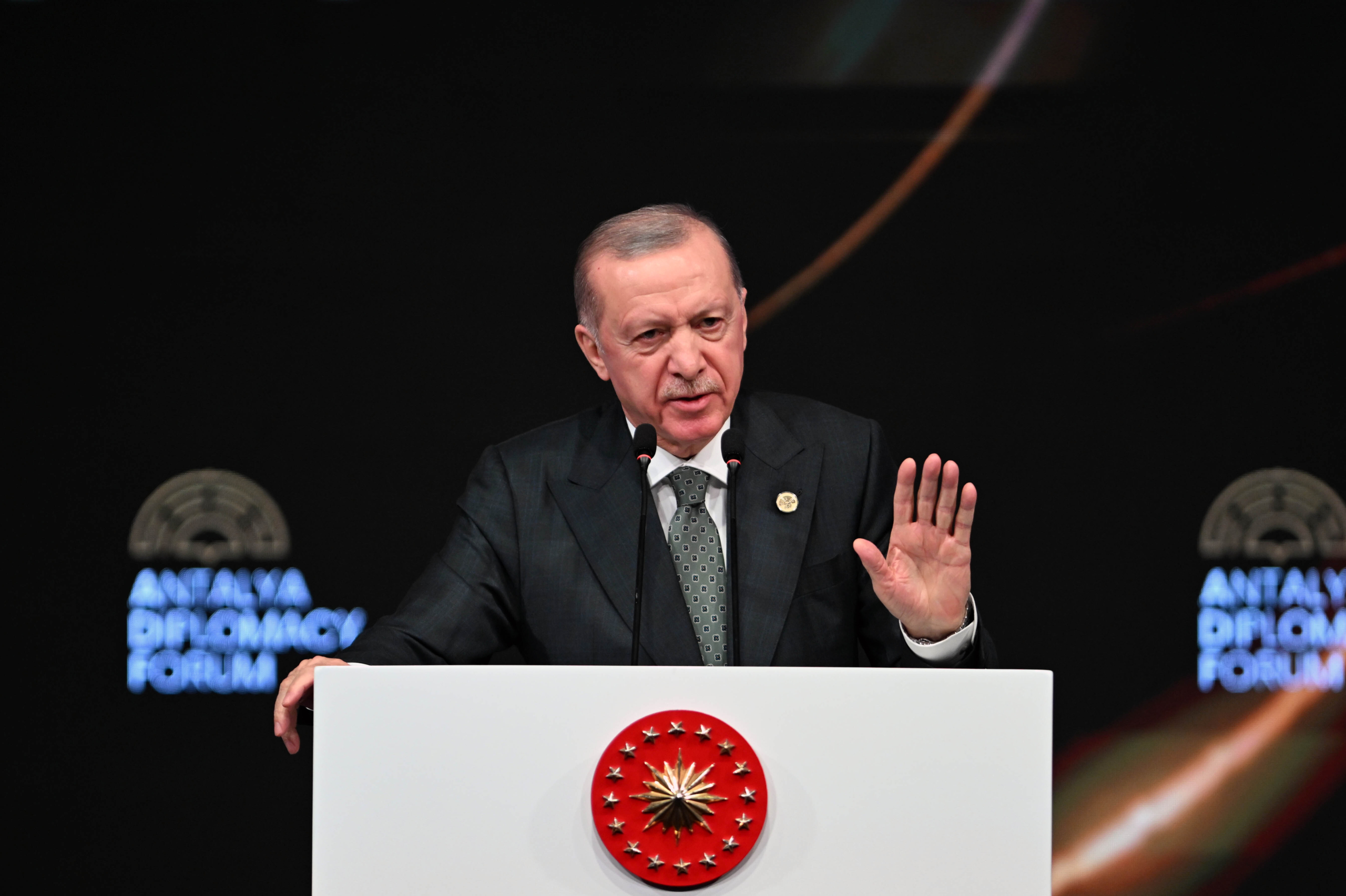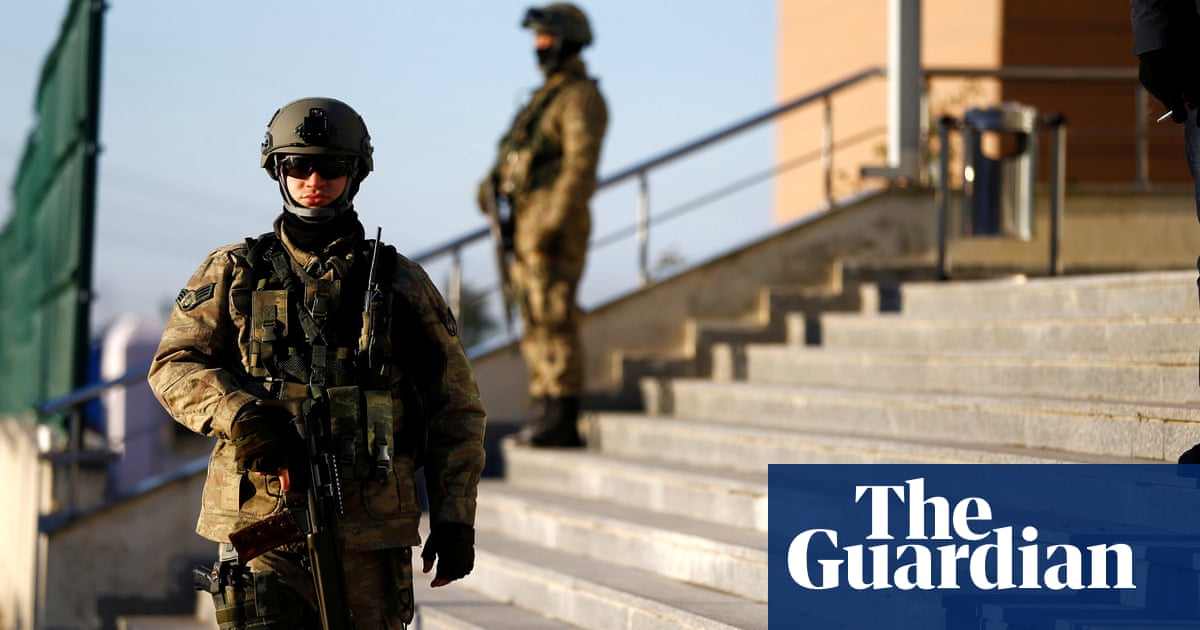Axis of unease: Why Europeans should try to manage a Turkey-Israel rivalry
The short but destructive war between Iran and Israel appears to have ended (for now) following a shaky truce. As the Middle East reels from the conflict, and tries to grapple with the implications of America’s new and elevated role, the region’s regimes are torn between a desire to see the amputation of Iran’s nuclear programme and concerns about the continuation of instability across the region.
Turkey is no different—but Ankara is also worried about Israel’s potential new role as a regional hegemon. This anxiety has been bolstered by Israel’s strikes against Iran’s powerful military and Israeli prime minister Binyamin Netanyahu’s success in bringing an initially reluctant Trump administration onto war footing.
Israel’s leverage over Washington decision-making is a burden for Turkish president Tayyip Erdogan. Turkey had been worried about the prospects of a destructive war of attrition next door: through its close ties to President Donald Trump, was involved in last-minute diplomacy to restart nuclear talks with Iran. Its government hosted Iranian foreign minister Abbas Araqchi in Istanbul to discuss the Israel-Iran conflict and backchanneled with the Trump administration to establish a last-minute Istanbul summit between Iran and the US. But efforts to return to negotiations have failed; Israel’s open-ended campaign against Iran is making nuclear diplomacy much harder.
Europeans should engage with Turkey on nuclear diplomacy and convince Tehran to come back to the negotiating table; but also help manage the negative consequences of the growing rivalry between Turkey and Israel across the region
Europeans should engage with Turkey on nuclear diplomacy and convince Tehran to come back to the negotiating table; but also help manage the negative consequences of the growing rivalry between Turkey and Israel across the region, including in Syria and Iraq. This will help reduce the potentially destabilising consequences of a new regional fault line between Turkey and Israel, and allow Turkey to devote at least some of its industrial and military capabilities away from the Middle East and towards partnering with other NATO allies for the defence of Europe.
A regional configuration
While Turkey’s rivalry with Israel is not new, it has only intensified since the downfall of the Assad regime in Syria and tensions around Iran’s nuclear programme began. At the Organization of Islamic Cooperation summit, Turkey’s foreign minister Hakan Fidan said that “Israel is now leading the region to the brink of total disaster by attacking Iran, our neighbour”. Fidan summed up the pressing theme in Turkey’s foreign policy: “There is no Palestinian, Lebanese, Syrian, Yemeni or Iranian problem but there is clearly an Israeli problem”.
Turkey and Iran, while competing for regional influence for decades, have generally stayed out of each other’s way. This is not to say Turkey and Iran are allies, however. As the Middle East’s primary Sunni and Shia powers, the countries have an ideological divide. But Turkey and Iran also have a pragmatic modus vivendi based on non-interference in each other’s affairs, a policy that has endured since the 17th century. Their shared border has remained unchanged since the 1639 Ottoman-Safavid accord and—even when backing opposing sides during the Syrian civil war—the countries avoided direct military confrontation.
For leading Turkish officials and commentators, the major concern now is that Turkey could be the next target in Israel’s regional destabilisation campaign. “Israel’s political and strategic goal is to encircle Anatolian landmass and sabotage our efforts to get to a Turkey without terrorism,” said Erdogan ally Devlet Bahceli, suggesting that Israel could torpedo Turkey’s burgeoning peace process with the Kurds. To placate a nervous Turkish public, long critical of Israel’s role in the humanitarian tragedy in Gaza, Erdogan has announced that Ankara will accelerate production of its medium- and long-range ballistic missile.
This development will expand Turkey’s already sizeable stockpiles and military industrial base. The country is a NATO member and has been able to produce at scale much of what it needs for conventional warfare—something the Europeans are, conversely, struggling to achieve. Europe should help Ankara manage tensions and instability on its eastern flank, especially in Syria, Iraq and Iran, and facilitate engagement on future European security architecture. A closer relationship would also help Europe and Turkey develop partnerships in the defence industry, which would benefit both parties in the long run.
From alliance to rivalry
In the 1990s, Israel and Turkey often coordinated their moves against antagonistic regional powers (such as Iran and Syria) through defence industrial partnerships, joint military manoeuvres and strategic dialogue. But after two decades of far-right and conservative governments in both countries, America’s two key regional partners have become antagonists in every possible way. Erdogan’s position as a global champion of the Palestinian cause has only deepened the divide, as has his public electoral platform being based on his support for the idea of Turkey’s ascendance as a regional power.
For his part, Netanyahu has become an almost-permanent feature of Israeli politics—and, since the Hamas attacks on October 7th 2023, the architect of a bold new regional role for Israel. Indeed, Israel’s resulting war in Gaza has allowed Netanyahu to establish Israel’s military dominance with operations in Iran, Lebanon, Syria and Yemen—creating more potential for conflict zones between the two.
Syria as a flashpoint
Since the downfall of Bashar al-Assad in December 2024, Turkey and Israel have been at odds over control of Syria. Both Erdogan and Netanyahu are vying for their respective zones of influence: Ankara has positioned itself as the primary benefactor of Syria’s new rulers, backing the interim authority led by Ahmed el-Shaara while hoping to expand economic and military influence across the country. Israel, by contrast, remains deeply sceptical of the new Syrian leaders—many of whom are former jihadists. It has come to see Turkey’s role in Syria as a long-term security challenge and stepped up airstrikes across the country, expanded its military footprint in Syria’s south. Israeli officials have also voiced support for greater Kurdish and Druze autonomy –both anathema to Ankara’s priorities in Syria.
Turkish officials are concerned that Israel wants a fragmented and unstable Syria; Ankara wants a unified, stable and Turkish-aligned Syria, with a strong central authority and limited autonomy for minorities. Tensions peaked in April, when Israeli warplanes bombed a site Ankara had earmarked for a future Turkish military base. They have since established a military hotline for deconfliction and to avoid an unintended clash. However, broader diplomatic dialogue remains frozen.
In the past, Washington played a role in mediating tensions between Turkey and Israel. But the second Trump administration—though willing—is too distracted by wars in Gaza, Iran and Ukraine to focus on the issue. Here Europeans could step in to play a mediation role, which could at the very least help establish a stable future course between the two antagonists.
Disorder in the making
According to Turkish diplomats interviewed for this piece, the idea of regime change in Iran is a terrible and potentially very costly idea. Ankara has a long-held aversion to the theocratic regime in Iran, but believes the government is too entrenched to uproot via an Israeli air campaign. Turkey is concerned about spillover effects across Iraq, Syria and other parts of the region, should a trigger-happy Israel seek regime change through force in Tehran. Ankara also fears that talk of regime change from Israel and Washington could backfire, triggering internal repression, mass displacement, economic disruption and cross-border violence.
Turkey’s anxiety reflects a deeper regional transformation. Israel’s unprecedented military reach and strategic boldness are forcing traditional powers in the region, including Turkey and Saudi Arabia, to reassess their posture and military capacity. For Turkey—which has spent decades building a sphere of influence from Syria to Somalia—Israel’s rapid ascendancy is not just unsettling. Rather, it threatens the country’s longer-term objectives for a stable regional order in which Turkey replaces the West as the region’s dominant economic and military power. Overall, it seems that relations between Turkey and Israeli relations are unlikely to improve any time soon.
*
As Israeli warplanes continue to pound Iranian targets and the talk of regime change in Iran becomes more prevalent, Ankara is trying to manage its diplomatic priorities. On the one hand, it is aligned with European powers in wanting to limit Iran’s reach, but on the other it is alarmed by what it sees as an increasingly unrestrained Israel pushing to destabilise Iran—by either toppling or destabilising the regime.
The post-conflict landscape may be even more fragmented and complicated than what preceded. As Europe and the US consider how to approach a new round of nuclear diplomacy, they should also recognise Ankara’s unease and the existence of Turkey’s rivalry with Israel. They need to help chart a stable course between the two in Syria, Gaza and elsewhere—one which brings Turkey back into Europe’s defensive priorities and prevents a collision course between the two regional heavyweights.
The European Council on Foreign Relations does not take collective positions. ECFR publications only represent the views of their individual authors.



